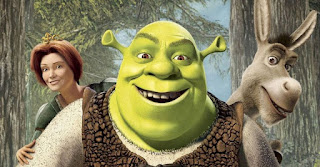When a Chinese Say "Eat While It’s Still Hot" (“趁热吃”)...
From the Chinese movie The Wandering Earth
Liu Qi, the teenager protagonist of the Chinese sci-fi movie The Wandering Earth, aspired to see the “outside world”. When he came to the gang leader of the underground city Yi Ge to exchange things for some necessary equipment, Yi Ge was absorbed in his video game and ignored the visitor. Liu Qi then took out a bag of skewers bought on the way and said to Yi Ge: “还给您带了串,趁热吃”(And I got you[honorific] skewers too. Eat while they’re still hot). In the subtitles, the sentence, “趁热吃” (Eat while they’re still hot), is translated into “freshly made”. So it goes like “And I got you[honorific] skewers too, freshly made.”
Well, this piece of translation sounds fairly natural and understandable, since it does address the meaning that the skewers are still hot and fresh and edible. But something is apparently lost in translation-- the imperative mood of the original sentence. If we then remain faithful to the script, keep the imperative mood, and translate it as “Eat while they’re still hot”, it would still be strange, for how dare a teenager order a gang leader to eat the street food? So what exactly is the problem?
The young helping food to the elderly (or reverse)
Retrieved from https://m.sohu.com/a/165643458_99960371
In fact, the expression of “eat while it’s still hot” in Chinese suggests more than a mere description of the food--it firstly appears to be an order or an invitation to enjoy the food, and secondly serves as a typical form of Chinese “politeness strategy”, a strategy of saying things to make listeners feel good about themselves. Just like adding “if you don't mind” to “I’ll come along” will render this statement friendlier, for Chinese hosts, saying “eat while it’s still hot” right after serving food to the guests is also a way of showing concern and amiability.
Or, if this example does not make sense to you, here is another well-known one. As an ordinary Chinese kid who has often been brought to family dinner tables, I have become so used to my relatives saying things like “try this” and “Oh dear, why are you eating so little, eat more” every time the waiters bring new dishes onto the table. This is also an application of the positive politeness strategy used to enhance interpersonal bonds. Despite the apparent fact that such politeness strategy is assumed to cause discomfort to the guests due to its forceful tone, it has been generally adopted as a common practice and gradually lose its offensive meaning.
Retrieved from http://qqpublic.qpic.cn/qq_public/0/0-2496262254-E37778A34B07448AC9D4D135D49D6AC5/0?fmt=jpg&size=15&h=300&w=300&ppv=1.jpg
Now, returning to the scene in the movie, we can understand the meaning of Liu Qi’s words more accurately. By “asking” Yi Ge to eat his favorite food, he meant to display concern and respect for him, and thus arouse Yi from his video game and draw his attention to Liu’s matter. From this perspective, the translation of “freshly made” is not that accurate for its failure to take the cultural implication into consideration. But surely, neither is the other one, unless the audience is familiar enough with cultural practices in Chinese table manners.
--Here is a column about Chinese table etiquette that I find quite accurate in explanation, in case you might be interested in it!
https://www.chinatravel.com/chinese-food/table-manner
Glossary
Honorific: a title that conveys respect
Positive politeness strategy: a strategy of saying things to make listeners feel good about themselves
By Flora







Comments
Post a Comment